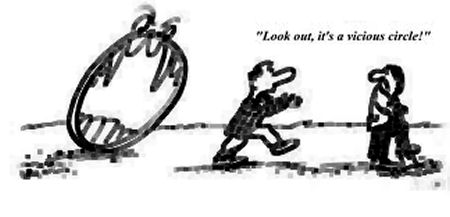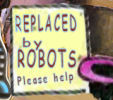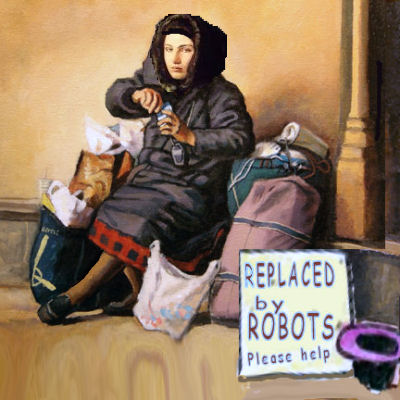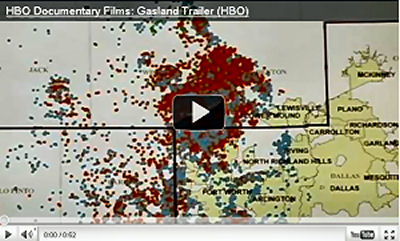Chapter 2: What was Promised?
The Technological Tempest: Charting a New Course
Chapter 2: What was promised?
In 1999 Daniel Broderick’s book “The Last Mortal Generation” was published. Broderick begins his book with the sentence: ‘Some time during the twenty-first century, ordinary humans like you and me – or our children, or our grandchildren – will be offered new medical treatments that will lead, eventually, to physical immortality’ (Broderick, 1999, p 1).
Broderick, like many others, looks at recent developments of technology and projects them into the future. Such projections of technological progress are usually seen as offering a pathway to a Utopian or Dystopian future (or anywhere on the spectrum in-between). Utopian projections are typically the domain of optimistic science fiction writers and futurists. Such people tend to emphasise the perceived benefits of technology and predict a future based on these, largely ignoring or glossing over the drawbacks and negatives. Many ‘utopians’
tend to assume that the problems caused by technological progress will be solved by technological progress. Dystopian projections are likely to come from social critics and those who are already somewhat discontented with what they see in their society. These predictions take the opposite tack, projecting the negative effects of technological development whilst discounting the perceived benefits, or perhaps paint such ‘benefits’ in a negative light. Science fiction writers may also select some aspects of technology and use these to create ‘monster’ scenarios, like out-of-control computers or organisms created by technology.
These are typically variations on Mary Shelley’s Frankenstein monster story - of science escaping the control of its creators. In fact, some people, like Derek Jensen, suggest that science and technology have already escaped human control (Jensen and Draffan, 2004).
To some, utopia is a society largely without technology. In 1754 French social philosopher Jean-Jacques Rousseau wrote ‘A Discourse on the Origins and Foundation of Inequality among Men’ (Cranston, Rousseau 1984). In his Discourse, Rousseau laments civilisation as a corrupting force which creates inequalities in wealth, power and privilege. Rousseau eulogises Man in a state of nature as follows:
‘I see an animal less strong than some, less agile than others, but taken as a whole the most advantageously organized of all. I see him satisfying his hunger under an oak,
quenching his thirst at the first stream, finding his bed under the same tree which provided his meal; and behold, his needs are furnished’ (Cranston, Rousseau 1984, p. 81)
In relation to medical technology, to many the most
compelling argument for technological development, Rousseau declares the
following:
‘On the question of sickness I shall not repeat the vain and empty declamations against medicine that are uttered by most people when they are healthy, but I will ask whether there is any solid evidence for concluding that in the country where medicine is most rudimentary the average life of men is shorter than it is the country where that art is cultivated with the greatest care; and how indeed could that
be the case if we bring upon ourselves more diseases than medicine can furnish remedies? The extreme inequality of our ways of life, the excess of idleness among some and the excess of toil among others, the ease of stimulating and gratifying our appetites and our senses, the over-elaborate foods of the rich, which inflame and overwhelm them with indigestion, the bad food of the poor, which they often go without altogether, so that they over-eat greedily when they have the opportunity; those late nights, excesses of all kinds, immoderate transports of every passion, fatigue, exhaustion of the mind, the innumerable sorrows and anxieties that people in all classes suffer, and by which the human soul is constantly tormented: these are the fatal proofs that most of our ills are of our own making’ (Cranston, Rousseau, 1984, p. 84).
Indeed, has anything improved in any of these regards in the modern world? One doubts. Rather it is likely that with the addition of exposure to various toxins and pollutants, that civilised life
contributes even more to illness today than in Rousseau’s time. This claim of Rousseau is one we return to in the light of other evidence later. In relation to gaining the benefits of one’s own industry we have the following argument
from Rousseau:
‘Even those who have been enriched by their own industry could not base their right to property on much better titles. In vain one would say: ‘I built this wall; I earned the right to this field by my own labour.’ For ‘Who gave you its extent and boundaries?’ might be the answer. ‘And in virtue of what do you claim payment from us for work we never instructed you to do? Do you not know that a multitude of your brethren perish or suffer from need of what you have to excess, and that you required the express and unanimous consent of the whole human race in order to appropriate from the common subsistence anything beyond that required for your own subsistence?’ (Cranston, Rousseau, 1984, p. 121).
Of course, there are arguments against this. One being that by populations accepting systems of governments, which in turn implement systems of markets, that populations have endorsed a process for the allocation and transfer of land from commons to private individuals and between private individuals. However, in reply to this Rousseau might well possibly draw on his arguments that such systems of government and property seem set up precisely to legitimise an elite group taking possession of common resources. Rousseau suggests that this process took place as follows:
‘Destitute of valid reasons to justify himself and of forces adequate to defend himself; easily crushing an individual but crushed himself by troupes of bandits, alone with his equals against all, and unable because of mutual jealousies to form alliances with his equals against enemies united by the common hope of plunder, the rich man under pressure of necessity conceived in the end, the most cunning project that ever entered the human mind; to employ in his favour the very forces of those who attacked him, to make his adversaries his defenders, to inspire them with new maxims and give them new institutions as advantageous to him as natural right was disadvantageous’ (Cranston, Rousseau, 1984, p. 121).
Now it is very questionable that any such approach took place. However, Rousseau’s summation does read like the sort of justification that any state may provide for its own existence even today:
‘instead of directing our forces against each other, let us unite them together in one supreme power which shall govern us all according to wise laws, protect and defend all the members of the association, repulse common enemies and maintain us in everlasting concord’
Of course, there certainly is evidence of at least some injustice in our systems of private ownership, and by implication our systems of government, which is consistent with Rousseau’s accusations against the institution of states. The conversion of common lands to private through the English enclosure movement, which is explored in Chapter 3, provides examples of this. Also the modern economist Piketty (2014) points out similar tendencies towards inequality in his book ‘Capital in the Twenty-First Century’. Karl Polanyi is another who presents a strong case against the injustices of modern market systems in his book “The Great Transformation” (first published in 1944). We return to Picketty’s and Polanyi’s ideas later in this chapter.
In his notes, Rousseau makes clear his indictment of civilisation:
‘Compare without prejudice the condition of the civilised man with that of the savage, and investigate, if you can, how, aside from his wickedness, his needs and his miseries, the civilized man has opened new doors to suffering and to death. If you consider the anguish of mind which consumes us, the violent passions which exhaust and grieve us, the excessive labours with which the poor are overburdened, and the even more dangerous laxity to which the rich abandon themselves, so that the former die of their needs while the later of their excesses; if you think of the monstrous mixtures they eat, their pernicious seasonings, their corrupt foods and adulterated drugs; the cheating of those who sell such things and the mistakes of those who administer them, of the poison vessels used for cooking; if you take note of the epidemic diseases
engendered by the bad air where multitudes of men are gathered together, take note also of those occasioned by the delicacy of our way of life, by our moving between the interiors of houses and the open air, by the use of clothes put on or taken off with too little precaution, and all the cares that our excessive sensuality has turned into necessary habits and of which the neglect or deprivation then costs us our life or our health,; if you take also into consideration fires which consume and earthquakes which overthrow whole cities, killing their inhabitants by thousands; in a word, if you add up the dangers that all these causes continually put together over our heads, you will see how dearly nature makes us pay for the contempt we have shown for her lessons.’ (Cranston, Rousseau 1984, p. 149).
Picketty in his 2014 book ‘Capital in the Twenty-First Century’ suggests that there is empirical evidence to support Rousseau’s bleak general analysis of civilised society by making the following claim in relation to 19th century France:
‘As I will soon show, the structure of the income and wealth hierarchies in nineteenth- century France was such that the standard of living the wealthiest French people could attain greatly exceeded that to which one could aspire on the basis of income from labor alone. Under such conditions, why work? And why behave morally at all? Since social in equality was in itself immoral and unjustified, why not be thoroughly immoral and appropriate capital by whatever means are available?’ (p. 240)
Henry David Thoreau was another who was suspicious not only of modern civilisation but also its governments, stating in the introduction to his book ‘On the Duty of Civil Disobedience’ the following:
‘Government is at best but an expedient; but most governments are usually, and all governments are sometimes, inexpedient. The objections which have been brought against a standing army, and they are many and weighty, and deserve to prevail, may also at last be brought against a standing government. The standing army is only an arm of the standing government. The government itself, which is only the mode which the people have chosen to execute their will, is equally liable to be abused and perverted before the people can act through it. Witness the present Mexican war, the work of comparatively a few individuals using the standing government as their tool; for, in the outset, the people would not have consented to this measure.’
And like Rousseau, Thoreau, seems to advocate the advantages of a simpler life:
‘Most of the luxuries, and many of the so-called comforts of life, are not only not indispensable, but positive hindrances to the elevation of mankind. With respect to luxuries and comforts, the wisest have ever lived a more simple and meagre life than the poor.’ (Thoreau, 1854, para. 19).
Greg (1936) makes the following argument in relation to simplicity:
‘It is often said that possessions are important because they enable the possessors thereby to enrich and enhance their personalities and characters. The claim is that by means of ownership the powers of self-direction and self-control inherent in personality become real. Property, they say, gives stability, security, independence, a real place in the larger life of the community, a feeling of responsibility, all of which are elements of vigorous personality. style='font-size:12.0pt;line-height:115%;font-family:"Times New Roman","serif"'>[1]
Nevertheless, the greatest characters, those who have influenced the largest numbers of people for the longest time, have been people with extremely few possessions. For example, Buddha, Jesus, Moses, Mohammed, Kagawa, Socrates, St. Francis, Confucius, Sun Yat Sen, Lenin, Gandhi, many scientists, inventors and artists. "The higher ranges of life where personality has fullest play and is most nearly free from the tyranny of circumstance, are precisely those where it depends least on possessions. . . . The higher we ascend among human types and the more intense personalities become, the more the importance of possessions dwindles.’ href="#_ftn2" name="_ftnref2" title="">[2] (section IX)
Finally on this point are more recent advocates of simple living Alexander, Trainer, & Ussher (2012):
‘Once our basic material needs are met, the limitless pursuit of money and stuff merely distracts us from more meaningful and inspiring things. As the ancient philosophers told us long ago, those who know they have enough are rich, and those who have enough but do not know it, are poor. Consumerism, it is clear, represents a mistaken idea of wealth, and it is based on a mistaken idea of freedom.’ (p. iii)
So we have seen one type of utopia – a simpler world living closer to nature. Is it possible that we can exist in a closer state to nature and still be happy? (technology after all, is largely about separating us from a state of nature.) It may well be so, and this is a topic we return to in Chapter 7.
Two variations on dystopian themes of futuristic societies are presented in the books ‘Brave New World’ and ‘1984’.
Aldous Huxley’s 1932 book “Brave New World” is a tale of a futuristic society in which everyone seems to be free, but desires are manipulated by the state (through behaviour conditioning) and various
state-favoured forms of amusement are promoted. In particular amusements based on casual sexual relations, a variation on cinema movies (called ‘feelies’) and a legalised drug called soma. Consumerism is encouraged and slogans like “ending is better than mending” contribute to a “throw-away” mentality in the population.
In Chapter 17 of ‘Brave New World’ Huxley presents the following conversation between two of his characters: John the Savage, who was raised in uncivilised reservation, and Mustapha Mond, Resident World Controller of Western Europe:
‘Mustapha Mond shut the [philosophy] book and leaned back in his chair. "One of the numerous things in heaven and earth that these philosophers didn't dream about was this" (he waved his hand), "us, the modern world. “You can only be independent of God while you've got youth and prosperity; independence won't take you safely to the end.” Well, we've now got youth and prosperity right up to the end. What follows? Evidently, that we can be independent of God. 'The religious sentiment will compensate us for all our losses.” But there aren't any losses for us to compensate; religious sentiment is superfluous. And why should we go hunting for a substitute for youthful desires, when youthful desires never fail? A substitute for distractions, when we go on enjoying all the old fooleries to the very last? What need have we of repose when our minds and bodies continue to delight in activity? of consolation, when we have soma? of something immovable, when there is the social order?”
“Then you think there is no God?”
“No, I think there quite probably is one.”
“Then why? …”
Mustapha Mond checked him. "But he manifests himself in different ways to different men. In pre-modern times he manifested himself as the being that's described in these books. Now …"
"How does he manifest himself now?" asked the Savage.
"Well, he manifests himself as an absence; as though he weren't there at all."
"That's your fault."
"Call it the fault of civilization. God isn't compatible with machinery and scientific medicine and universal happiness. You must make your choice. Our civilization has chosen machinery and medicine and happiness. That's why I have to keep
these books locked up in the safe. They're smut. People would be shocked if
…"
The Savage interrupted him. "But isn't it natural to feel there's a God?"
"You might as well ask if it's natural to do up one's trousers with zippers," said the Controller sarcastically. "You remind me of another of those old fellows called Bradley. He defined philosophy as the finding of bad reason for what one believes by instinct. As if one believed anything by instinct! One believes things because one has been conditioned to believe them. Finding bad reasons
for what one believes for other bad reasons–that's philosophy. People believe in God because they've been conditioned to.
"But all the same," insisted the Savage, "it is natural to believe in God when you're alone–quite alone, in the night, thinking about death …"
"But people never are alone now," said Mustapha Mond. "We make them hate solitude; and we arrange their lives so that it's almost impossible for them ever to have it."’
How poignant is this final statement about the difficulties in attaining solitude today? Can we be alone for long without interruptions of mobile phones? Without the distracting noises of the modern world? Even in remote locations the sense of isolation is often interrupted by the sound of airplanes flying overhead – ensuring that the ‘modern world’ stays present in our mind - perhaps associated with the recall of many unfinished tasks or impeding financial obligations? The effects of constant interruptions to one’s thoughts caused by smart phones and other technology is a topic debated by neuroscientists and many authors in this area discuss the
possibility of severe negative effects on human brain function and psychology (Greenfield, 2014; Levitin, 2014; Roberts, 2014).
“Brave New World’ presents a covertly controlled society. In a later essay written in 1958, called ‘Brave New World Revisited’, Huxley reflects on his 1932 book ‘Brave New World’ and actual society at that time, Huxley explains the processes of control (as he sees them) as follows:
‘It is perfectly possible for a man to be out of prison, and yet not free -- to be under no physical constraint and yet to be a psychological captive, compelled to think, feel and act as the representatives of the national State, or of some private interest within the nation, want him to think, feel and act. There will never be such a thing as a writ of habeas mentem; for no sheriff or jailer can bring an illegally imprisoned mind into court, and no person whose mind had been made captive by the methods outlined in earlier articles would be in a position to complain of his captivity. The nature of psychological compulsion is such that those who act under constraint remain under the impression that they are acting on their own initiative. The victim of mind-manipulation does not know that he is a victim. To him, the walls of his prison are invisible, and he believes himself to be free. That he is not free is apparent only to other people. His servitude is strictly objective.’ (Huxley, 1958, Sec. XII)
George Orwell’s book ‘1984’ (published in 1949) presents a more overtly controlled society in contrast to the more subtle and sophisticated methods of ‘Brave New World’. A society in which government engages in mass surveillance so as to detect and eliminate any possible resistance or threats to the government or the dis-information it disseminates.
Aldous Huxley argued in a letter to George Orwell that the covert means of control used in Brave New World was more realistic than 1984’s overt methods:
‘the lust for power can be just as completely satisfied by suggesting people into loving their servitude as by flogging and kicking them into obedience. In other words, I feel that the nightmare of Nineteen Eighty-Four is destined to modulate into the nightmare of a world having more resemblance to that which I imagined in Brave New World. The change will be brought about as a result of a felt need for increased efficiency.’ (Huxley, 1949)
Note that the driver of this process is believed by Huxley to be ‘a need for efficiency’, the type of motivation one might expect in a technocratic society, a society in which efficiency is defined or conceived in such a way so as to exclude many negative side effects (i.e negative externalities) - a topic which we will return to in a later chapter.
One pattern that appears to emerge from our brief analysis of visions of utopia and dystopia, is that utopian societies can be ones with relatively little technology (or at least with relatively simple technologies) or ones with very sophisticated technology, like Broderick’s book ‘The Last Mortal Generation’. Dystopian ideas, however, tend be almost exclusively associated with societies that have attained a level of ‘high technology’. It is as though highly developed technology is itself somewhat ominous, somewhat less controllable by everyday people, and somewhat more empowering for dehumanised abstractions, like state power or ideologies. This may in part be explained by the fact that societies without technology are seen as more imaginable, perhaps the underlying, and unsaid, understanding is that one need only study historical societies to know what less technologically sophisticated societies would be like. This implies that any future society that does not use highly sophisticated technology would be very much like one or more societies of the past. But is this true? Could we not have a society that is in many ways different from past societies, even if we were to revert back to a much simpler way of living? Does this assumption of future-being-like-the-past place too much emphasis on the role of technology in society? Perhaps this perspective itself, of seeing and judging societies based on their levels and use of technology is a product of our own ‘technologically biased’ mindset? Someone visiting from a past time period brought to our modern world may overlook our technology entirely. Rather than being in awe of our technological achievements they may be well be horrified at the high cost and slowness of our justice systems, the levels of ill health and obesity, the fact that vast numbers of people sit all day in offices, the enormous amounts of time (and energy) spent travelling, the inequality of wealth, the waste and epicureanism all around. They may well regard our opinion of ourselves as an ‘advanced human culture’ as altogether conceited, and in many ways inaccurate.
There are however, some who conceive the possibility of a life closer to nature, with simpler technologies, and see this not as a return to the past, but as an entirely new culture. David Holmgren and Bill
Mollison proposed permaculture as a system for redesigning society for a ‘low energy future’. Such a pattern of reaching a peak of resource use, followed by a sudden collapse is one of the scenarios predicted by modelling in the 1972 report, sponsored by the Club of Rome, called the ‘Limits to Growth’. The Limits to Growth report also tackled technological determinism as depicted by statements like:
‘There are no substantial limits in sight either in raw materials or in energy that alterations in the price structure, product substitution, anticipated gains in technology and pollution control cannot be expected to solve’ (pg 130)
In response, based on their modelling, the report’s authors conclude:
‘The basic behavior mode of the world system is exponential growth of population and capital, followed by collapse. As we have shown in the model runs presented here, this behavior mode occurs if we assume no change in the present system or if we assume any number of technological changes in the system.’ (p. 142)
An alternative vision of society is provided by Bill Mollison and David Holmgren, both of whom have written extensively about the system they call ‘permaculture’. Bill Mollison describes permaculture as
follows (Mollison 1991):
‘The word itself is a contraction not only of permanent agriculture but also of
permanent culture, as cultures cannot survive for long without a sustainable agricultural base and landuse ethic.’ (p. 1)
Mollison (1988) also states that a principle of permaculture is ‘Cooperation, not competition, is the very basis of existing life systems and of future survival’ (p 2)
For his part, Holmgren (2002) states:
‘I am suggesting that we need to get over our naïve and simplistic notions of sustainability as a
likely reality for ourselves or even our grandchildren and instead accept our task is to use our familiarity with continuous change to adapt to energy descent’ (p. xxx)
By energy descent Holmgren is referring to notions of a global peak of energy use followed by a rapid decline, with its associated chaos.
Holmgren’s and Mollison’s vision is a variation on, and perhaps a direct descendent of, the vision of Professor J. Russell Smith who in 1929 published a book called “Tree Crops” (Smith, 1929). Smith argues for a system of agriculture that relies more on trees and less on annual grains. Smith claims this will protect soils from erosion, and require less work than pure grain crops whilst providing farmers with a diversity of crops to protect them against the failures that may affect single crop systems. Smith proposes that nut and fruit trees should be used largely to provide animal feed, not just human food. Like permaculture Smith also suggests that this will provide a system of ‘permanent agriculture’.
The visions of the Smith, Holmgren and Mollison stand in stark contrast to the ‘predictions of Isaac Asimov, Robert Heinlein and other macho sci-fi novelists whose future worlds were always filled with space traders, superslick salesmen, genius scientists, pirate captains and other rugged individualists’ (Barbrook & Cameron 2007)
The idea of the power of the individual seems to be embedded in American culture. John Ralston Saul (1992) has suggested that most cultures are based on a kind of mythology or ideology. In America, this mythology seems to be based around the idea of the ‘self-made man’. In other words, the ability of any American to become rich if they just apply themselves. If you are rich, it is because you deserve to be rich. In America, unlike Old Europe where wealth is inherited, people become rich by applying themselves to hard work either in industry, their own education or both. Based on this concept of meritocracy, America has promoted itself in the past as the ‘land of opportunity’.
This myth based around the merits of the individual has always been questionable. Let us consider the merit of the bankers who take home enormous sums; are the people whose ingenious inventiveness in derivatives led to global financial collapse in 2008 really worth those large sums? Presumably, merit in a meritocracy, such as America claims to provide, should lead to benefits for all? Otherwise, it is not really a system that rewards merit at all – or least not what most people would consider merit, but rather a system that rewards pure selfishness and greed. And that at the expense of everyone else.
In fact, it is likely that it is selfishness and greed that is taking away many of the opportunities that Americans have enjoyed in recent decades. For example, many American opportunities for gaining work and experience in a range of fields are either disappearing overseas (to China, India and other low-wage countries) or being automated away (Ford, 2007). The opportunities that are not automated away probably mostly remain with vulnerable small to medium enterprises (with
varying degrees of profitability) or with large bureaucratic organisations in which work is (and thus workers are) standardised and controlled as never before. Recent evidence suggests that active efforts are underway by large players to eliminate smaller ones as quickly and ruthlessly as possible. This is especially the case with respect to agriculture and food production, which appears to have a revolving door between corporate positions and government regulatory roles, much like the American financial industry.
So, if the only opportunities outside of large organisations like Walmart are to work for businesses whose jobs and services cannot be offshored or automated, and if even these are under attack from the large corporations (using fair means or, just as likely, foul), then how is America any more a ‘Land of Opportunity’ than, say, Mexico? Yet, Americans still believe in this myth. Why is that?
Perhaps it because there always has been some examples of individuals who have succeeded apparently through their own merits. More recently the most obvious domain in America that provides prominent examples that seem to make this myth plausible is technology. The internet and its related success stories prop up the entire edifice of American opportunity, which in many other respects seem to be crumbling. The success of people like Bill Gates, Steve Jobs, and glamorous tech companies like facebook and Google allow this myth to continue
to be promulgated and, in doing so, is thus preventing Americans from making a fundamental re-examination of their entire culture. Today is the promise of the Internet that is propping up the justification for the so-called 1 per cent of the population to hold so much wealth with the promise that any member of the 99 per cent can escape to a life of wealth of fame — if they are talented enough. It is the Internet that provides sufficient rags-to-riches stories of the likes of Mark Zuckerberg, so as to beguile a whole nation. A nation not only adoring of technology for its own sake, but also because of its promises of wealth and privilege for the common-man.
Support for the premise that the Internet has been used to sell the ‘American Dream’ can be found in a joint publication produced by some of America's leading technological evangelists, including Esther Dyson, George Gilder, George Keyworth, and Alvin Toffler. The following are extracted from an 1994 publication by these authors. The publication was telling called ‘Cyberspace and the American Dream: A Magna Carta for the Knowledge Age’:
‘America, after all, remains a land of individual
freedom, and this freedom clearly extends to cyberspace. How else to explain the uniquely American phenomenon of the hacker, who ignored every social pressure and violated every rule to develop a set of skills through an early and intense exposure to low-cost, ubiquitous computing.
style='font-size:12.0pt;line-height:115%;font-family:"Times New Roman","serif"'>
‘Those skills eventually made him or her highly marketable, whether in developing applications-software or implementing networks. The hacker became a technician, an inventor and, in case after case, a creator of new wealth in the form of the baby businesses that have given America the lead in cyberspatial exploration and settlement.’
The extract above refers to the opportunities for freedom (read: wealth) that are available in America and ‘the uniquely American phenomenon’ (another myth) of the penniless hacker whose talents (read: merits) lead them to success.
So the elite, and their servants, continue to mislead the public. Perhaps fortunately, for the elite, this myth was established well before the 2008 financial crisis hit so as to maintain the illusion even as the Occupy movements across America decried the growing inequalities of American society.
Social and Technological critic Langdon Winner wrote an article linking the ideas of ‘Cyberspace and the American Dream: A Magna Carta for the Knowledge
style='font-style:normal'>Age’ to right wing conservatism and suggests the influence of Ayn Rand. Rand’s philosophy suggests that one’s abilities and talents are entirely one's own. Thus those fortunate enough to be gifted by nature with intelligence and ability owe nothing to their fellow man.
In fact, these unfortunates are to be despised, as most likely (according to Rand – see her book ‘The Fountainhead’) their ignorance and incompetence will just hold back those who are more talented. Is this the meritocracy of America? Where the strong exploit, rather than help, the weak? Sadly, that seems to be evident in both banking and corporate behaviour more generally in America.
The influence of Any Rand has continued to play an on-going role in Silicon Valley politics. Under the brand ‘libertarianism’ Rand’s philosophy is presented as defending the rights of the individual – in particular individual freedom. Freedom for the individual to both create whatever he or she desires, and also to justify any outlandish returns such risk-taking behaviour may bring him or her. Rand’s philosophy says nothing about the responsibilities of the individual for any harm or damage they may cause, it only defends their right to do as they please, unfettered by those whom Libertarians may call ‘less ambitious’ but whom the population more generally may call prudent or cautious.
It seems that such one-sided arguments as Rand’s which argue for freedom but not for responsibility can lead to reckless, unjust and inhumane behaviour. And it is not just Rand who promotes such views. The following extract from the article by Morozov (2015) discusses the influential theories of free-market economist Friedrich Hayek and links those theories to an example of the very sorts of problems that such unbalanced free-market thinking seems to lead to:
‘In the free-market utopia of thinkers such as Friedrich Hayek – the true patron saint of the sharing economy – your reputation would also reflect what other market participants know about you.
Thus, if you are a nasty customer or an ill-mannered driver, everybody else will soon discover this, and specific laws to police your behaviour are
rendered unnecessary.
The good news, according to Hayek, is that once our norms change – what was considered nasty 50 years ago might be perfectly acceptable today – our reputations would reflect these changes immediately.
Laws, on the other hand, would take quite some time to be altered.
In reality, though, such a perfectly liquid and dynamic reputation
marketplace is nowhere to be seen. A recent lawsuit in the US highlights its
absence. Uber drivers have been accused of discriminating against disabled people by refusing to put their wheelchairs in the boot of their car. One would think that anti-discrimination laws that apply to taxis would also apply to Uber. Uber says it has anti-discrimination policies – and that it’s not a taxi company, it’s a technology company, a platform. Here, there is clearly no easy feedback mechanism to assist disabled travellers: this is what consumer protection laws are for.
It seems that Uber is one Silicon Valley company that subscribes to the idea of a free-market but limited responsibility, and perhaps reflects the influence of Rand? Other possible consequences of the ideologies prevalent in Silicon Valley are suggested in Barbrook &
Cameron’s 2007 article ‘The Californian Ideology’. An extract from that article reads as follows:
‘While the Vietnamese at the cost of enormous human suffering were able to expel the American invaders from their country, the hippies and their allies in the black civil rights movement were eventually crushed by a combination of state repression and cultural co-option.
The Californian Ideology perfectly encapsulates the consequences of this defeat for members of the virtual class.
Although they enjoy cultural freedoms won by the hippies, most of them are no longer actively involved in the struggle to build ecotopia. Instead of openly rebelling against the system, these digital artisans now accept that individual freedom can only be achieved by working within the constraints of technological progress and the free market. In many cyberpunk novels, this autistic libertarianism is personified by the central character of the hacker, who is a lone individual fighting for survival within the virtual world of information.[31]’
So in Rand’s Utopia it seems the individual is faced with accepting firstly the status-quo of an increasingly repressive society, and secondly – and perhaps implied by the former - a state of individualistic fighting for survival. Rand’s philosophy seems closely related to the economic notions commonly referred to as neo-liberalism which are “characterised by strong private property rights, technological rationalism and free markets”
Mann (2014 pg 2).
Need life be so hard and limiting? Are our efforts at creating ‘utopias’ perhaps creating conditions that are far harder on the human soul than many actual real societies of the past?
In his article ‘A small and shuffling life’ (Jan 15,
2015) Geroge Monbiot laments the conditions of modern life with the reflective question: ‘Why, in this age of freedom, are we so confined? And what can we do to reclaim our lives’ – a cry that echoes the sentiments expressed in Barbrook & Cameron’s ‘The Californian Ideology’ extract above. In his article Monbiot draws on accounts of a past reality as a comparison:
‘Perhaps we have forgotten the bitter complaint made by Benjamin Franklin in 1753. “When an Indian Child has been brought up among us, taught our language and habituated to our Customs, yet if he goes to see his relations and make one Indian Ramble with them, there is no persuading him ever to return.”(2) But when European Americans “have been taken prisoners young by the Indians, and lived a while among them, tho’ ransomed by their Friends, and treated with all imaginable tenderness to prevail with them to stay among the English, yet in a Short time
they become disgusted with our manner of life … and take the first good
Opportunity of escaping again into the Woods, from whence there is no
reclaiming them.” In 1785 Hector de Crèvecoeur asked two European refuseniks why they would not come home. “The reasons they gave me would greatly surprise you: the most perfect freedom, the ease of living, the absence of those cares and corroding solicitudes which so often prevail with us.”(3)’
So what is leading us away from such perfect freedom and ease of living?
Karl Polanyi suggests that ‘once elaborate machines and plant were used for production in a commercial society, the idea of a self-regulating market was bound to take shape’ (Polanyi 1957, pg 41). So are we in the grip of forces beyond our control, as Jensen and Draffan, (2004) suggest? Or perhaps our problems emanate from notions of techno-utopianism;
the idea ‘that technology will solve our problems’ (Alexander, 2015). Techno-utopianism follows the story line that technology driven growth which would seem to lead to shortages, or other problems, can be overcome by technological advances.
The Grantham Institute for Climate Change’s 2013 report provides an example of the Techno-Utopian story based on the following extracts from its Executive Summary. The story follows the structure of problem-solution-outcome:
1. Problem (caused by industrialism/technology):
‘There is still a chance to achieve a reduction in CO2 emissions that would keep the world broadly on track to limit global warming to around 2 degrees Celsius (2°C) above pre-industrial levels. This study outlines how it could be done’.
2. Solution (more technology):
‘The study specifies the technologies that would be employed in this energy system in a reference scenario (the “low mitigation scenario”, LMS) in which no concerted action on climate change is undertaken, and in a range of low-carbon scenarios (LCS) in which emissions reductions would be broadly in line with a
2oC global warming target. In this way the study sets out the major
technologies needed for this energy system transformation, with associated costs.’
3. Outcome (business-as-usual; growth can continue):
‘Importantly, this study assumes that future GDP growth is the same in the LMS and the LCS,
which implies that investments in low-carbon technologies do not affect other investments outside of the energy sector, such that the overall effect of investment patterns on growth is the same in both scenarios’
So the Grantham Institute for Climate Change’s 2013 report seems to provide evidence of how our society desperately seeks technological solutions to resolve the problems caused by technology, seeking at the same time to preserve our technological system and the ideologies associated with it.
So what has gone wrong with our technological society? Why are we faced with such momentous calamities? Why have our utopian dreams around the possibilities of progress been unable to deliver happiness and security? Perhaps the answer is alluded to in the writings of Friedrich Georg Juenger in his 1920 book titled ‘The Failure of Technology’. In this book Juenger writes about the authors of utopian visions as follows:
‘No one will look for prophetic gifts in a Jules
Verne or a Bellamy, for they lack almost everything that makes a prophet. Most of all, they lack the vocation, the call, and with it also the necessary wisdom, and the language in which this wisdom speaks. At best, they make a lucky guess that something will happen. They play with the imaginary, they play with the future, but it can never have for them the certainty it has for him who thinks and lives in religious terms. What they project into the future is merely a possibility emerging in the present, expanded by them in a logical and rational manner.’ (pg 2)
Is it true that utopian authors and peddlers lack wisdom? Perhaps at leastit is true that they lack the calling, as frequently they are seeking to tell a story, seeking perhaps to titillate the intellectual senses, rather than address real problems of the world in a holistic and wise manner? Who do we turn to then we want to consider what sort of society we want and how we might achieve it? Perhaps the first question to answer here is: What sort of society do we want? Hopefully the following chapters will help shed some light on what aspects might be desirable, and also what might be undesirable, as well as offering some lessons in regard to the question of how to achieve what we might want.
class=MsoFootnoteReference>
style='font-size:10.0pt;line-height:115%;font-family:"Calibri","sans-serif"'>[1]
"Property: A Study in Social Psychology," by Ernest Beaglehole, Alien
& Unwin, London, 1931.
class=MsoFootnoteReference>
style='font-size:10.0pt;line-height:115%;font-family:"Calibri","sans-serif"'>[2]
"The Christian Attitude Toward Private Property." by Vida D. Scudder
(a pamphlet), Morehouse Pub. Co., Milwaukee, Wis.; cf. also Chapter VI of
"Our Economic Morality," by Harry F. Ward, Macmillan

 How Microsoft's Office software, which used to be permanently licensed, may now expire while you are using the computer you bought if for, because the user has no control over Microsoft versions. The result is that the buyer is greatly disadvantaged, but Microsoft makes money hand over fist for a self-limiting product.
How Microsoft's Office software, which used to be permanently licensed, may now expire while you are using the computer you bought if for, because the user has no control over Microsoft versions. The result is that the buyer is greatly disadvantaged, but Microsoft makes money hand over fist for a self-limiting product. Craig Dilworth writes "From a biological/ecological point of view, the growth of the human population can be likened to that of lemming populations prior to their periodic migrations. Such a rate of growth is unprecedented in any large animal species.....The human population is 'swarming'. We are behaving like an r-selected species.....Key to this whole process is our constantly meeting vital needs through the application of new forms of technology to both renewable and non-renewable resources, combined with the fact that there have to date always existed resources amenable to that development....If technological development were truly an aid to the survival of the human species, it would not have led to the elimination of a significant part of the population's resource base, only to have replaced by an inferior substitute. There is something wrong with the development of technology in the hands of humans...."
Craig Dilworth writes "From a biological/ecological point of view, the growth of the human population can be likened to that of lemming populations prior to their periodic migrations. Such a rate of growth is unprecedented in any large animal species.....The human population is 'swarming'. We are behaving like an r-selected species.....Key to this whole process is our constantly meeting vital needs through the application of new forms of technology to both renewable and non-renewable resources, combined with the fact that there have to date always existed resources amenable to that development....If technological development were truly an aid to the survival of the human species, it would not have led to the elimination of a significant part of the population's resource base, only to have replaced by an inferior substitute. There is something wrong with the development of technology in the hands of humans...."
 I mean, why exactly do we have self-serve checkouts? Can anyone think of 1 good reason for them? They don’t increase efficiency because as my Kmart experience demonstrates, self-serve machines don’t create more service providers as the stores simply hire less staff.
I mean, why exactly do we have self-serve checkouts? Can anyone think of 1 good reason for them? They don’t increase efficiency because as my Kmart experience demonstrates, self-serve machines don’t create more service providers as the stores simply hire less staff.

 France is about to debate a law to totally ban fracking for gas. Australia has allowed the practice with problems quickly developing. Mexico has no defenses. The United States is deeply affected. "Fracking" was developed by Halliburton, the second largest oilfield services corporation in the world. The term comes from the extraction method of hydraulic fracturing of shale beds to access "unconventional gas" i.e. gas that comes out of wells other than classic oil-wells. Under President Bush, the fracking industry was exempted from environmental laws, including clean water protection. As many of us have come to understand, when you take away environmental protection, you take away almost all human rights to object to big business, even if citizens lives are obviously threatened. We also mention the Australian film made by Four Corners investigating the impacts of the industry in Australia.
France is about to debate a law to totally ban fracking for gas. Australia has allowed the practice with problems quickly developing. Mexico has no defenses. The United States is deeply affected. "Fracking" was developed by Halliburton, the second largest oilfield services corporation in the world. The term comes from the extraction method of hydraulic fracturing of shale beds to access "unconventional gas" i.e. gas that comes out of wells other than classic oil-wells. Under President Bush, the fracking industry was exempted from environmental laws, including clean water protection. As many of us have come to understand, when you take away environmental protection, you take away almost all human rights to object to big business, even if citizens lives are obviously threatened. We also mention the Australian film made by Four Corners investigating the impacts of the industry in Australia. 


 Click here to see a movie which the industry has made in response to the film.
Click here to see a movie which the industry has made in response to the film.
Recent comments